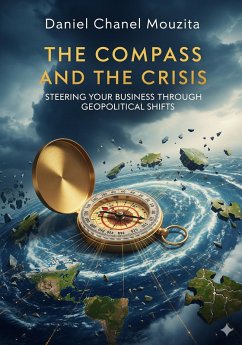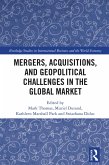That compass is now broken.
The world we operate in today is fundamentally different. The era of "hyper-globalization" is over, replaced by a new reality defined by fragmentation, competition, and uncertainty. The geopolitical landscape is no longer a distant concern to be handled by a specialized foreign relations team; it is an active, dynamic force that is already shaping your revenue streams, your supply chain, your capital allocation, and your talent strategy. The crisis is not coming; it has arrived.
The question is no longer if a geopolitical event will impact your business, but when, how, and with what velocity. The purpose of this book is to provide you with a new compassa practical, actionable framework for not only navigating this new reality but for leveraging it to build a more resilient and future-proof enterprise.
We have entered an age where state-sponsored competition, economic nationalism, and the weaponization of trade and technology are no longer theoretical threats. They are the daily operating conditions. This is a new normal that demands a new mindsetone that sees geopolitical risk not as an external variable but as an embedded component of core business strategy.
This shift is more than just a trend; it is a profound structural change that has been gathering momentum for years. For evidence, look at the dramatic U-turn on globalization. In the decade leading up to 2010, the world saw a steady liberalization of trade policies. But a seismic shift occurred around that time.
The number of non-tariff barriers, from export controls to local content requirements, has multiplied, turning what was once a smooth global marketplace into a minefield of regulations.
Dieser Download kann aus rechtlichen Gründen nur mit Rechnungsadresse in A, B, CY, CZ, D, DK, EW, E, FIN, F, GR, H, IRL, I, LT, L, LR, M, NL, PL, P, R, S, SLO, SK ausgeliefert werden.









